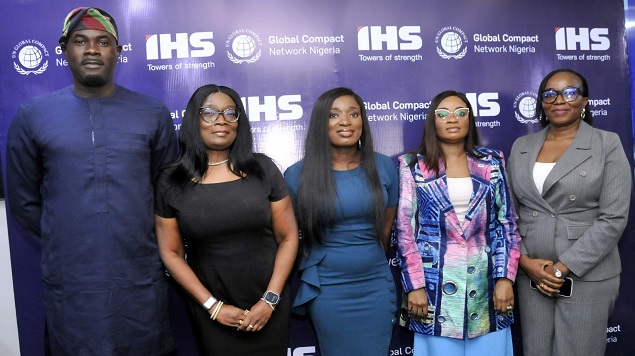General News
DHL, Google Disclose Intents of New Age E-Commerce Consumers

The rise of e-commerce on the African continent is changing the face of the traditional consumer, and brands need to adapt their business models and strategies in order to remain relevant amongst consumers and avoid a drop in market share.
African consumers are increasingly searching online platforms with commercial intent, which include querying prices of goods, and researching where products or services can be purchased.
According to research by Google South Africa, there was an increase of 49% in query volumes in Nigeria, 37% in South Africa and 33% in Kenya, during 2014.
Charles Brewer, managing director of DHL Express Sub Saharan Africa said that understanding your consumer, knowing how to target communications to them and ultimately deliver what they want, when they want it, is key to the ongoing success of e-commerce in the region.
“Africa’s growing middle class is driving consumer demand and in turn, the e-commerce industry on the continent. As a result, retailers need to ask themselves if they are ready for this ‘new’ and evolving client base.
He added that, “Logistically and operationally speaking, businesses will need to shift from a business-to-business approach to a more business-to-consumer approach as retailers will now have to meet the demand of transporting products to individual clients. New structures will need to be implemented to ensure that the company’s supply chain is agile enough to respond quickly and effectively to the increased demand.”
Brewer noted that while there is huge potential for e-commerce in the region, compared to emerging markets, e-retailing in Africa is still in its infancy.
A recent retailing study conducted by Urban Studies on behalf of South African Council of Shopping Centres (SACSC), revealed that Africa and the Middle East’s share of global e-commerce in 2015 is just 2%, but that it shows high potential.
This is supported by a recent report by McKinsey & Company, which revealed e-commerce could account for 10% of retail sales in Africa’s largest economies by 2025.
Google also predicts that a massive e-commerce market will emerge in Africa by 2017 as the continent becomes more familiar with technological advances.
As e-commerce gains momentum, it once again highlights the potential for local retailers and entrepreneurs.
A great success story is that of Bethlehem Tilahun Alemu, who founded soleRebels, a footwear company in Addis Ababa, Ethiopia in 2005.
Within less than a decade, she has been able to grow her business from an organization of just five people, producing for her local market, to a global organization of over 300 employees with eight stand-alone stores, serving over 50 countries.
The key to her success in a fiercely competitive retail environment was a combination of traditional African artisan skills and technologies, innovative use of local (often recycled) materials, personal drive and energy, and a global vision.
“This is just one example of the many opportunities that we are seeing in the region. In this developing market, the needs of the emerging e-commerce players have played a key role in our aggressive expansion strategy in Africa,” Brewer added.
General News
NASRDA, Galaxy Space Firm Sign MoU on Satellite Connectivity

National Space Research and Development Agency (NASRDA) has signed a Memorandum of Understanding (MoU) with Galaxy Space, Chinese LEO satellite player, to deploy direct‑to‑device (D2D) satellite services nationwide by the end of this year.

According to media reports, Galaxy Space will integrate its LEO satellite constellation into Nigeria’s telecom grid, which will allow existing smartphones and laptops to link directly to the satellites.
The MoU also covers technology‑transfer programmes, joint R&D labs and the co‑production of a CubeSat by Nigerian engineers.
Apart from the benefit of enabling mobile coverage outside of terrestrial network range, Dr Matthew Adepoju, director- general, NASRDA, said the deal with GalaxySpace would enable Nigeria to build up its domestic space technology sector.
“It is no longer acceptable that we must import every single device we need,” he told the News Agency of Nigera. “The time has come for us to produce our own technologies here at home.”
GalaxySpace, which designs and manufactures its own LEO satellites, currently has a test constellation of seven LEO satellites in orbit, and has said its “Mini-Spider” constellation will eventually comprise up to 1,000 satellites.
GalaxySpace said it has also signed multi-tier partnerships in Thailand, the United Arab Emirates, Saudi Arabia, Indonesia, and Malaysia.
Last year, it also signed a deal with Hong Kong carrier PCCW Global to integrate its LEOsat connectivity with PCCW’s worldwide network, giving it access to over 3,000 cities across the Americas, Europe, Africa, the Middle East and Asia-Pacific.
General News
IHS Nigeria, United Nations Global Compact Host High-Level Dialogue on Sustainability and Greener Business Practices in Nigeria

IHS Nigeria, in collaboration with the United Nations Global Compact Network Nigeria, hosted a high-level private sector dialogue themed “Collaborative Strategies for Greener Business Practices, Innovation and Sustainable Development”.

The event, held in Lagos, brought together key players from different sectors including finance, law, telecommunications, biodiversity, and corporate sustainability to explore actionable pathways to achieve meaningful environmental stewardship in Nigeria.
The panel session offered bold perspectives on integrating sustainability into business frameworks across different sectors, whilst dispelling myths, and highlighting opportunities for organizations, and calling for collective action from all players within the business value chain.
Delivering a keynote address, Titilope Oguntuga, Director, Sustainability at IHS Nigeria, emphasized the urgency of environmental consciousness: “Sustainability is not a destination — it’s a collective journey.
“It requires courage to transform, vision to lead, and collaboration to scale. Nigeria stands at a crossroads. We can either be overwhelmed by the risks or rise to become a beacon of green innovation and inclusive growth in Africa. The choice is ours — and the time is now.”
Sylvie Josel, Lead, Biodiversity and Nature-Based Solutions at the United Nations Global Compact, joined virtually from New York and spotlighted nature as a strategic asset:
“Nature must no longer be treated as an afterthought. It underpins everything, from human rights to supply chains. Embedding biodiversity into a company’s core strategy isn’t just a risk mitigation measure; it’s a smart, future-forward business imperative”.
Lanre Babalola, Group Head, Climate Finance and Sustainability at the Bank of Industry (BOI), provided insights into how BOI is funding sustainable ventures and driving innovation: “We look beyond profitability; we look at environmental and social impact. Whether it’s plastic roads, biogas, or solar transitions, we support businesses that are not only bankable but capable of reshaping the future.”
From the legal perspective, Oyeronke Oyetunde, General Manager, Regulatory Affairs, MTN Group, drew attention to the regulatory challenges hindering sustainability adoption: “Our legal frameworks are trailing behind today’s sustainability realities. We need forward-thinking laws, reduced regulatory silos, and incentives that reward the right behavior. Sustainability can’t thrive where enforcement is weak, and taxation is excessive.”
Abimbola Agbejule, Head, Corporate Sustainability and Responsibility at Wema bank, spoke passionately about inclusiveness in sustainable development: “You don’t need to start big to make impact. MSMEs make up a huge part of our economy. Sustainability should be embedded in their day-to-day activities, and we must democratize access to knowledge, tools, and partnerships.”
The session was moderated by Gloria Okorie, Head of Programs at the United Nations Global Impact Center.
The event closed with a resounding call to action for stronger legal frameworks, deeper collaborations, and inclusive capacity building across sectors. The event further reinforces IHS Nigeria’s position as a leader in corporate sustainability and innovation in Nigeria.
“At IHS Nigeria, we recognize that true progress happens when sustainability is not an obligation, but a culture, lived every day, across every unit,” Titilope Oguntuga added.
Through initiatives like this dialogue, IHS Nigeria and its partners continue to champion solutions that protect the planet, empower people, and ensure long-term business viability.
General News
Bridging the Digital Divide: Over 700 Young Africans Empowered by Paradigm Initiative

Paradigm Initiative (PIN), a leading digital rights and inclusion nonprofit, has revealed in its 2024 Annual Impact Report that over 707 young individuals across 11 African countries have been empowered through its flagship LIFE Legacy Programme.

The initiative delivers training in life skills, ICT, financial literacy, and entrepreneurship—transforming underserved communities across the continent.
In 2024, the LIFE Legacy Programme ran 25 training cohorts across Cameroon, DRC, Ghana, Kenya, Senegal, South Sudan, Liberia, Uganda, Tanzania, Zambia, and Zimbabwe. In Senegal, 60 laptops were distributed to local partners, while digital literacy programmes were launched in schools in Cameroon and Tanzania through the LIFE@School initiative.
PIN advanced its advocacy by supporting 29 legal cases in Ghana, Kenya, and Nigeria. A notable success was the landmark judgment in Molehin v. UBA, where the bank was found guilty of violating data privacy laws.
PIN’s research and media efforts made powerful waves. The Londa digital rights report, covering 26 countries, was downloaded 8,457 times. Its fourth short film, Undersight, recorded nearly one million views on YouTube. PIN also developed an AI strategy report with TrustLaw and collaborated with the Centre for Democratic Technology to assess content moderation policies for Kiswahili across Kenya and Tanzania. A separate report highlighted the troubling deployment of surveillance technologies across Africa, which was referenced in direct advocacy engagements with a telecom operator.
The organisation’s advocacy also contributed to the adoption of the African Commission’s Resolution 580, which urges governments to avoid Internet shutdowns during elections—strengthening digital freedom across the continent.
Meanwhile, the Digital Rights and Inclusion Forum (DRIF) convened in Accra attracted 1,004 delegates from 61 countries, strengthening regional collaboration and amplifying the voice of civil society. PIN’s strategic communications pushed its media reach to 1.43 billion and social media engagement to 8.8 million.
Alongside training and policy efforts, the organisation inspired young changemakers through youth-focused campaigns and hosted seven fellows under the Digital Rights and Inclusion Learning Lab (DRILL) fellowship.
Crowning a year of impact, PIN earned the maiden PrivCon Privacy Award in Nigeria and was recognised in the Social Innovation Category at the Nigeria Innovation Awards for its work connecting African youth to digital opportunity.

 Telecom1 day ago
Telecom1 day agoOver 1m Nigerians Reached through MTN Staff’s Digital and Community Outreach

 General News1 day ago
General News1 day agoNASRDA, Galaxy Space Firm Sign MoU on Satellite Connectivity

 Telecom1 day ago
Telecom1 day agoMafab Gets 0724 Number Series, Launches Mcom 5G Brand

 News1 day ago
News1 day agoDBN Awards N13m in Grants to Tech Startups

 News1 day ago
News1 day agoFCCPC Shuts France, Belgium, and Italy Visa Centres in Abuja Over Alleged Consumer Rights Violations

 News2 days ago
News2 days agoHow and Why N210 Trillion is Missing in NNPCL – CFO

 News2 days ago
News2 days agoPalmPay, Glo Launch “Recharge and Win Bonanza 2” with Exciting Prizes

 General News2 days ago
General News2 days agoIHS Nigeria, United Nations Global Compact Host High-Level Dialogue on Sustainability and Greener Business Practices in Nigeria

























